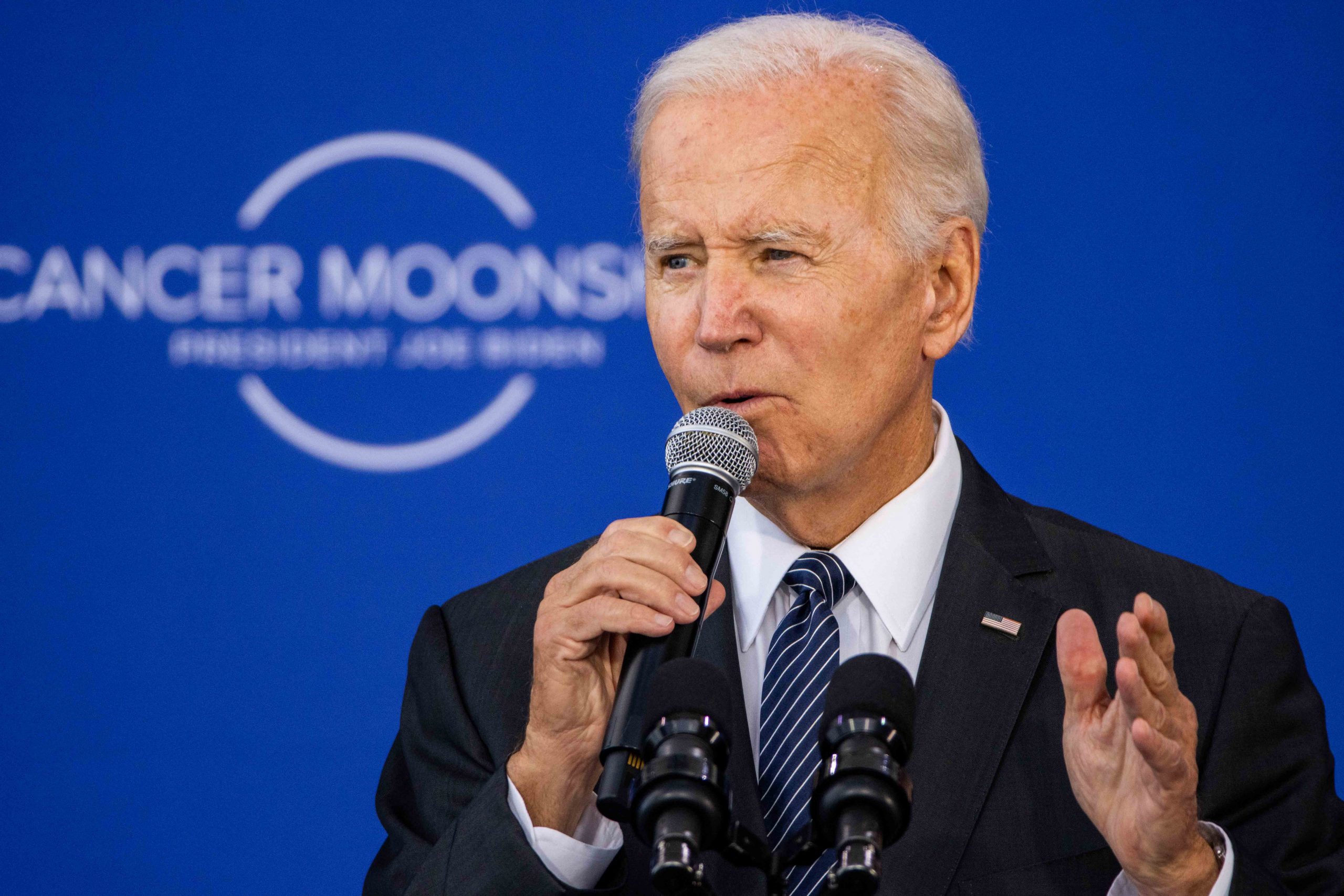
President Joe Biden arrived in Boston on Monday to speak about his bipartisan infrastructure plan and Cancer Moonshot initiative, which aims to cut cancer deaths in half over the next 25 years.
Biden delivered his Cancer Moonshot speech at the John F. Kennedy Library, hours after landing at Logan Airport where he spoke about his bipartisan infrastructure law, which invests roughly $1 trillion into upgrading public transportation systems, roads and bridges and addresses climate change.
Logan Airport will receive $62 million from the infrastructure law for upgrades within the international terminal and transportation around the airport. Biden said the upgrades at Logan are predicted to create 5,900 jobs.
“[Logan] is more than an airport,” Biden said. “It’s critical to our economy and your economy, but it needs a significant upgrade to accommodate the passengers flying in and out from all over the world and support international trade.”
Mayor Michelle Wu said in an interview with the Daily Free Press the funding provided by Biden’s infrastructure law will be “transformative” for Boston.
“[This funding] changes the standards for many of the industries that are most connected to climate change and it pushes a lot of the rebates and incentives and grants and funding directly to municipalities or even to families directly,” Wu said.
Biden said this infrastructure law is a “once in a generation investment” and is the most significant investment in American infrastructure since President Eisenhower’s interstate highway system.
After speaking at Logan Airport, Biden expanded upon his Cancer Moonshot initiative — originally created when he was Vice President in 2016 — at the John F. Kennedy Presidential Library. His speech marks the 60th anniversary of President John F. Kennedy’s 1962 Moonshot address at Rice University in Houston, Texas.
Biden said his ultimate goal would be to “cure cancers once and for all” while creating more supportive experiences for patients and families until a cure is found.
“Cancer does not discriminate — red and blue,” Biden said. “It doesn’t care if you’re a Republican or a Democrat. Beating cancer is something we can do together.”
The fight to end cancer is a deeply personal matter for Biden, whose son, Beau, lost his battle with brain cancer in 2015.
Biden also announced the appointment of Dr. Renee Wegrzyn, former program manager of the Defense Advanced Research Projects Agency (DARPA), as the first director of the Advanced Research Projects Agency for Health (ARPA-H) — established to further support U.S. biomedical and health research.
ARPA-H will “embrace proven models of tapping talent and expertise from across industry, academia and government to bring new ideas and approaches” to health science and research initiatives, according to a White House press release.
Biden also explained an executive order he issued earlier Monday meant to advance biotechnology and biomanufacturing in the United States.
“We need to manufacture advanced biotechnologies here in the United States,” Biden said. “Today’s action has ensured that America leads the world in biotechnology, biomanufacturing, creating jobs, reducing prices and strengthening supply chains.”
Stephanie Dougan, principal investigator of cancer immunology and virology at the Dana-Farber Cancer Institute wrote in an email she is worried Biden is tying success to reducing cancer deaths.
“I think we need to make sure public expectations are aligned with reasonable goals,” Dougan wrote. “We should make sure that every patient with cancer, no matter where they live or what cancer type they have, is able to access medical care that includes treatments that are able to extend their chance of survival and improve the quality of their lives.”
Kurt Straif, pollution and health professor at Boston College and former researcher at the International Agency for Research on Cancer (IARC), said there is too much focus on cancer treatment and not enough focus on cancer prevention.
“I think there should be a really strong focus on prevention,” he said. “That means reduce, if not eliminate, known risk factors of cancer.”
Straif said the number one identified environmental risk factor for cancer is air pollution, and the government should address climate change to see a decrease in cancer deaths.
“Instead of a moonshot, I think we need to focus on planetary health, meaning we have not only the cancer problem, we also have the climate crisis,” he said. “Many of the risk factors for the climate crisis, like burning fossil fuels, will also, if eliminated with a transition to cleaner, greener energy, would reduce air pollution and therefore reduce cancer.”






















































































































